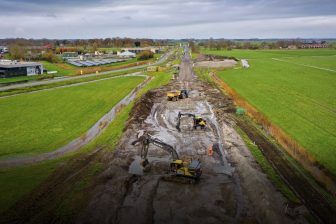Grant to construction of drinking water infrastructure Haiti
Haiti will expand access to water and sanitation in rural areas with assistance from Spain
$10 million grant will finance construction of drinking water infrastructure latrines in small rural communities in the Artibonite department
Haiti will expand water supply to approximately 60,000 individuals in rural communities of the Artibonite department with a $10 million grant provided by the Spanish Cooperation Fund for Water and Sanitation in Latin America and the Caribbean (Spanish Fund).
The Inter-American Development Bank (IDB), which provided technical assistance for the project’s preparation and will monitor its execution, will develop it together with the Haitian government and the Spanish Fund. The program will be executed by Haiti’s National Water and Sanitation Directorate (DINEPA).
The Haitian authorities identified the department of the Artibonite (which has 1.5 million inhabitants), as urgently in need of water and sanitation investments. Approximately 50 percent of rural population in the Artibonite has access to water, which is not necessarily potable, and only 15 percent has access to some form of sanitation.
Consistent with the lessons learned in previous programs financed by the IDB, Spain and other donors, this operation will help establish autonomous community-based water committees in villages with populations consisting of a maximum of 5,000 people. The communities will make all key decisions related to their own projects: from participation in the program to choosing between alternative systems with different costs. Between 12 and 15 potable water supply systems are expected to be financed with the grant, along with latrines and other appropriate wastewater disposal systems.
The community participation activities will ensure that water and sanitation systems, and resulting water tariffs, are commensurate with the communities’ capacity to pay. In addition, a follow-up program will provide continuous technical support to ensure the sustainability of the potable water and sanitation system.
Grant funds will also be used to establish a future regional regulator for water and sanitation, and strengthen the rural presence of DINEPA. It will also include a public health component that will help to eradicate intestinal parasites known as soil transmitted helminthes (STH) through better sanitation and hygiene education measures. STH current affect around 33 percent of the population of Artibonite.
This is the sixth drinking water and sanitation coverage expansion and improvement project jointly carried out by the IDB and the Spanish Fund. The Fund was launched in 2008 by initiative of Spanish President José Luis Rodríguez Zapatero.
In October 2009, Spain contributed $20 million and the IDB another $19 million, both in grants, to help expand and improve water and sanitation services for around 150,000 people in the Haitian cities of Saint-Marc, Port-De Paix, Les Cayes, Jacmel, Ouanaminthe and Cap-Haitien. The IDB is also currently executing a US$15 million program to expand these services in rural areas of the departments of Grande Anse, Nippes, Artibonite and Ouest.
The Spanish Fund and the IDB are also expected to jointly finance a $50 million water and sanitation project for Port-au-Prince later this year. And with technical advice from the IDB, Spain last year also created a $100 million bilateral fund to finance water and sanitation sector reform activities in Haiti.
Spain and the IDB have expanded drinking water and sanitation services through projects either approved or already under way in countries including Peru, Bolivia and Guatemala (see links on the right). The partnership is also preparing projects focusing on rural and peri-urban areas of Brazil, Costa Rica, Ecuador, El Salvador, Honduras, Uruguay, and Panama.
With this $10 million grant, Spain’s contributions to the sector have reached $262 million in less than one year. Within the framework of its partnership with the IDB, Spain will make contributions totaling some $450 million in grants for water and sanitation projects, while the IDB will provide about $300 million in grants and loans, besides financing a large part of the projects’ preparation and execution costs. Nearly 4 million people living in the region’s low-income peri-urban and rural communities are expected to benefit from these projects.
U las zojuist één van de gratis premium artikelen
Onbeperkt lezen? Profiteer nu van de introductieaanbieding voor € 10,- per maand.
Bent u al abonnee?



